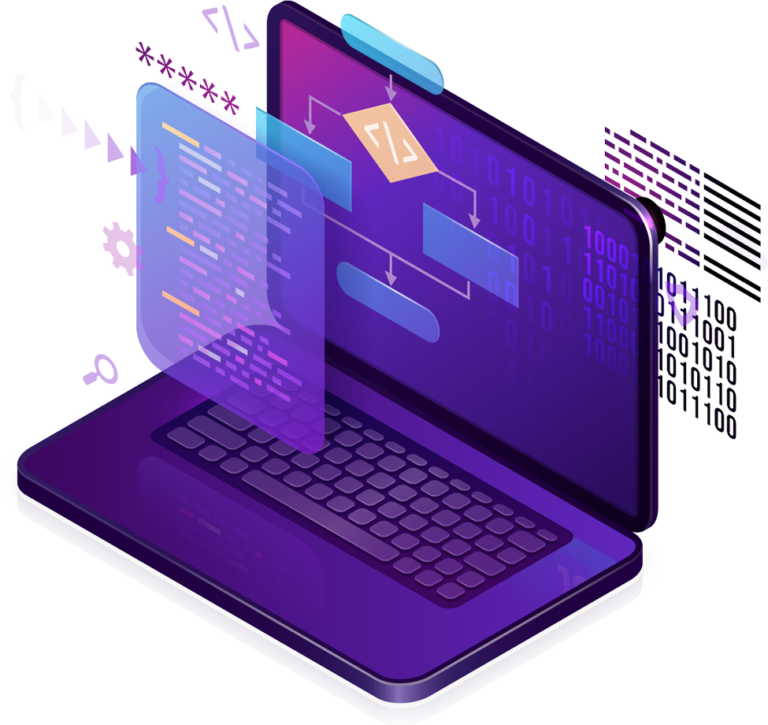BUSINESS ALGORITHMS

Business Algorithms
To make an offer interesting in the market, an organization must clearly express to consumers the benefits of a product, service, or brand and make its unique qualities stand out compared to other competitors.
This is competitive differentiation, i.e., the situation where the customer perceives an organization’s offer as superior compared to other similar offers.
The most common techniques of differentiation can be achieved through packaging, marketing campaigns, and post-sale product support. Start-ups often develop products or services in niche markets to competitively differentiate around a specific consumer need.
In this perspective, the so-called “Business Algorithms” can help your company to differentiate itself in your industry or market dominated by competitiveness.
WHAT ARE BUSINESS ALGORITHMS?
According to a definition provided by Gartner, “Business algorithms are the industrialized use of complex mathematical algorithms, fundamental to driving business decision improvement or process automation for competitive differentiation.”
Business Model with the Application of an Algorithm
The following infographic shows the steps to automate a business model and use algorithms to increase revenue.
- Collect and store as much data as possible from the various touchpoints the customer has with our organization
- Determine a business process that can be automated
- Develop algorithms and test, train, validate, and improve them in a continuous loop to perfect them
- Ensure the collection of high-quality data
What are the benefits of implementing business algorithms for your company?
Predict customer behavior:
Machine learning is used by companies to predict customer behavior to increase the customer base or offer them better services. By observing purchase patterns and browsing through purchase history, retail companies can offer the most personalized product or service to individual customers and improve demand forecasts.
Product Recommendation:
In e-commerce, algorithms can be used to motivate product purchase. If combined with a large inventory of products, machine learning can be used to identify hidden patterns and group similar items. These products can be suggested to customers.
Enhance marketing strategy:
Machine learning can generate a large amount of real-time data to make them more relevant and useful. The data received from analyzing customer behavior can be used to make appropriate changes to a company’s marketing and sales strategy, including upselling and cross-selling. ML models equipped with image recognition software at retail companies can be extended to customers so they can find the right product in a scanned inventory of thousands of products. Moreover, sales can be obtained through the implementation of the recommendation engine and real-time targeted advertising can also be generated on websites.
Sectors that already apply and exploit a Business Algorithmic model
There are many companies around the world that have started using algorithms. We will discuss here the main sectors that use algorithms to increase revenues.
Airlines
Airlines have long used algorithms to set passenger fares. But the factors that determine these prices have grown significantly because new emerging players have increased competition. There are many variables that come into play when setting airline prices. Given the complexity of the variables analyzed, it would be impossible for a human to interpret this complexity, while in this the algorithms are specialized.
E-Commerce
E-commerce websites like Amazon and Alibaba use the business algorithmic model, mainly for pricing, inventory and matching sellers. They use a dynamic pricing strategy that allows retailers to automatically change their prices based on changes in the market. They take into account customer demands, competitor prices, and other factors. They also conduct large-scale pricing experiments and simulations to make better strategic business decisions.
Transportation
Uber and other taxi services have made commuting easier for us these days. But most of these companies don’t own taxis. They only use smart algorithms to connect passengers to drivers in their area based on their needs.
Trading
Some trading systems heavily rely on complex mathematical formulas and high-speed computer programs to determine trading strategies. Algorithms can be used in investment strategy, trading strategy, arbitrage, and even in pure speculation of market trends. They are mostly designed with the help of modern programming languages or at least with spreadsheets. The most basic models may rely solely on linear regression, while the more complex models use neural networks and genetic programming.
